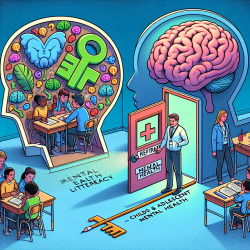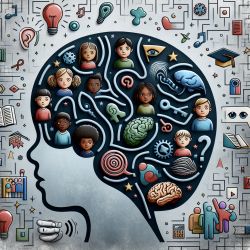Transforming School-Based Mental Health Referrals: The Power of Literacy Training
In the realm of child and adolescent mental health, early identification and appropriate referrals are crucial. A recent study, "School-based mental health literacy training shifts the quantity and quality of referrals to tertiary child and adolescent mental health services: A Western Canada regional study," highlights the transformative potential of mental health literacy training in schools.
The Study: A Data-Driven Approach
Conducted across 208 schools in Calgary, Alberta, this study implemented the Go-To Educator mental health literacy training between 2013 and 2016. The goal was to enhance educators' ability to identify and refer students at risk of mental disorders. The study utilized a retrospective cohort design, comparing schools with no training, pre-training, and post-training conditions.
Key Findings: A Shift in Referrals
The results were compelling. Post-training, schools showed a significant increase in referrals of younger students from single-parent families, often due to adjustment, learning, or attention problems. These students frequently presented with complex social and family issues, thought disturbances, and harmful behaviors.
While students from trained schools waited longer for admission, they stayed longer in services and demonstrated positive treatment outcomes. This suggests that the Go-To Educator training not only improved the quantity of referrals but also the quality, ensuring students with more complex needs received the necessary care.
Implications for Practitioners
For practitioners, these findings underscore the importance of mental health literacy training. By equipping educators with the skills to identify and refer students effectively, we can bridge the gap between education and health sectors. This collaboration is vital for early intervention and improved mental health outcomes.
- Increased awareness and identification of mental health issues among students.
- Enhanced referral processes leading to better-targeted interventions.
- Improved collaboration between educational and health systems.
Encouraging Further Research
This study serves as a call to action for further research into the integration of mental health literacy programs in schools. By exploring different models and approaches, we can continue to refine and improve the impact of such training on student outcomes.
Conclusion: A Path Forward
The Go-To Educator training has shown promising results in improving mental health referrals in schools. By continuing to invest in and expand these programs, we can ensure that students receive the support they need, when they need it most.
To read the original research paper, please follow this link: School-based mental health literacy training shifts the quantity and quality of referrals to tertiary child and adolescent mental health services: A Western Canada regional study.










